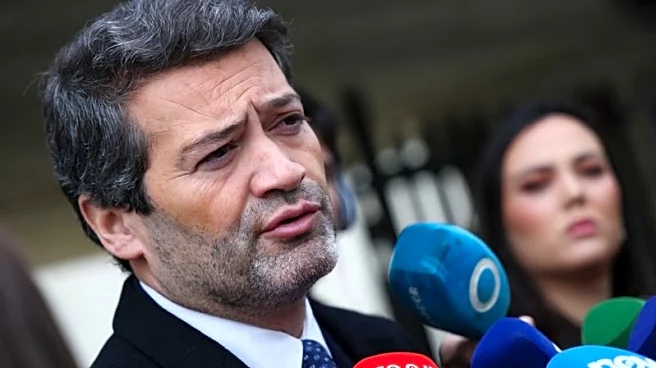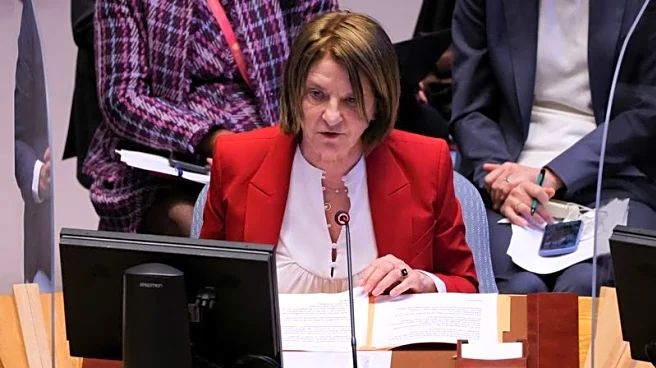What's Happening?
Ryan Britt, a fifth-generation farmer in north-central Missouri, is enhancing his farm's return on investment (ROI) through a combination of conservation practices, adaptive grazing, and dairy-inspired efficiency. Britt's approach includes no-till farming,
cover crops, and rotational grazing, which have improved soil resilience and beef performance. His efforts have been recognized with a Leopold Conservation Award. Britt's farm, which produces corn, soybeans, wheat, and cattle, has shifted from conventional tillage to conservation-focused methods, including grid-based soil testing and variable rate fertilizer applications. These practices have led to more consistent yields and reduced input costs, contributing to a better ROI.
Why It's Important?
Britt's conservation efforts highlight a growing trend in agriculture towards sustainable practices that prioritize long-term soil health and economic viability. By focusing on ROI rather than maximum yields, Britt demonstrates a model that could be beneficial for other farmers facing similar challenges. His methods reduce dependency on chemical inputs and enhance soil fertility, which is crucial for the sustainability of agricultural operations. This approach not only benefits the environment but also ensures the farm's profitability and resilience against climate variability, making it a potential blueprint for other U.S. farmers seeking to balance economic and environmental goals.
What's Next?
Britt plans to continue expanding his conservation practices, including the construction of a deep pit facility for manure management, inspired by dairy operations. This facility will allow for better nutrient management and further reduce input costs. As Britt's methods gain attention, they may influence broader adoption of similar practices across the agricultural sector. The success of these initiatives could prompt policy support for conservation practices, potentially leading to incentives for farmers who adopt sustainable methods.
Beyond the Headlines
Britt's story underscores the cultural shift in farming towards embracing innovation and sustainability. His willingness to experiment and adapt reflects a broader movement within agriculture to address environmental challenges while maintaining economic viability. This shift may lead to increased collaboration between farmers, researchers, and policymakers to develop and implement practices that support both productivity and environmental stewardship.
















